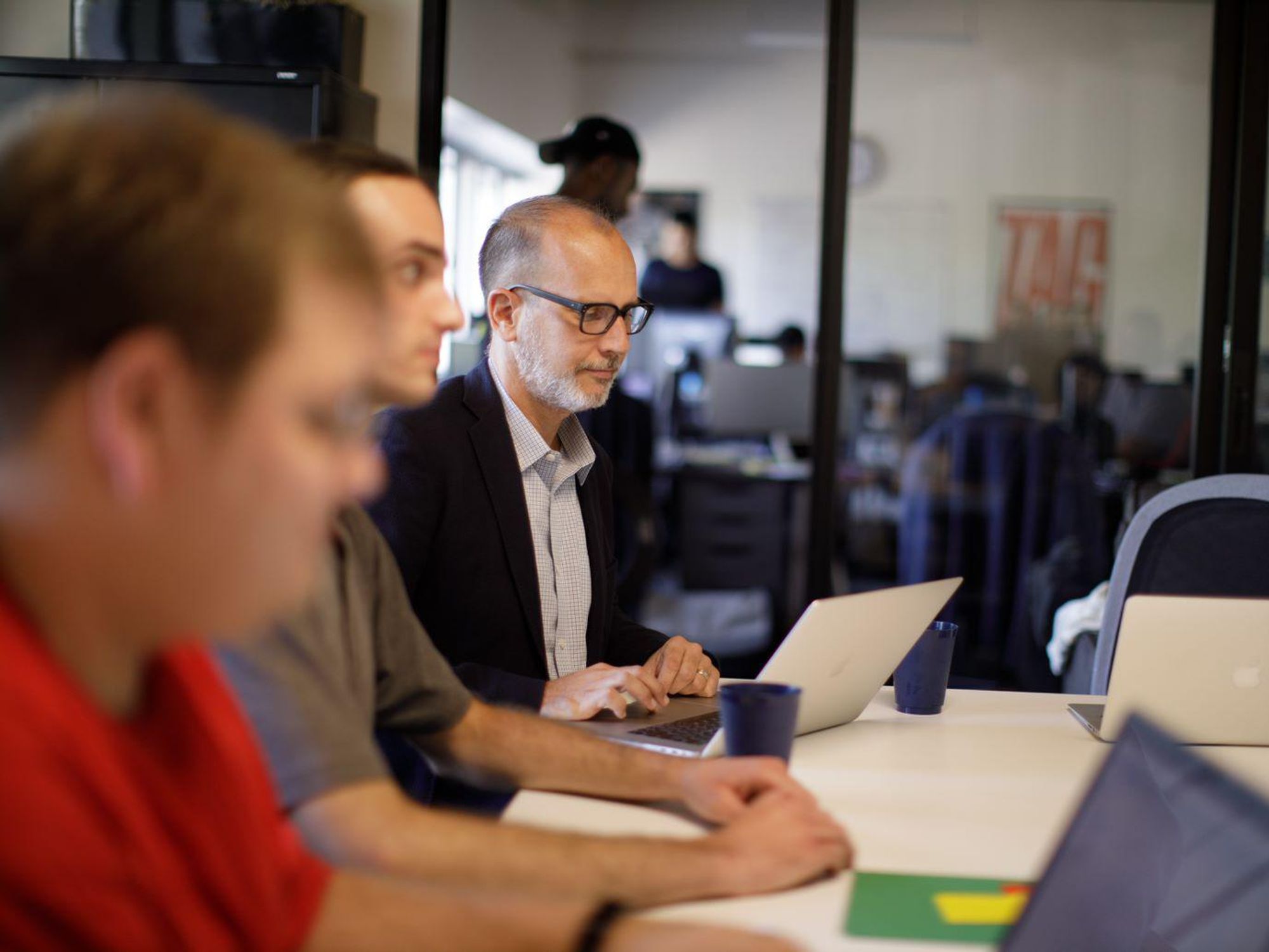With New Funding, Auticon Looks to Grow Job Opportunities for Autistic Adults
Decerry Donato is a reporter at dot.LA. Prior to that, she was an editorial fellow at the company. Decerry received her bachelor's degree in literary journalism from the University of California, Irvine. She continues to write stories to inform the community about issues or events that take place in the L.A. area. On the weekends, she can be found hiking in the Angeles National forest or sifting through racks at your local thrift store.

Technology consulting firm Auticon just received a boost to its mission of helping companies hire more autistic employees.
Auticon (which styles its name “auticon”) announced Wednesday that it has received over $4 million in funding from the Autism Impact Fund, a Florida-based venture capital firm that invests in companies that look to move the needle for people with autism.
Auticon certainly appears to meet the fund’s criteria. Since launching in 2011, the Germany-based tech consulting firm—which has its U.S. headquarters in Woodland Hills—has made it a priority to give employment opportunities to adults on the spectrum. Today, 250 of Auticon’s 350 employees are autistic.
“We believe that the principles of business are needed in order to help solve some of society's challenges,” Auticon U.S. CEO David Aspinall told dot.LA. “The challenge that we focused on is that of employment in the autistic community.”
Research suggests that between 50% to 75% of the 5.6 million autistic adults in the U.S. are either unemployed or underemployed, while nearly half of 25-year-olds with autism have never held a paying job. Oftentimes, those on the spectrum who are applying for a job can be hindered during the interview process due to a lack of eye contact or discomfort in social situations.
The new funding from the Autism Impact Fund will help propel Auticon’s hiring efforts in the Los Angeles region.Image courtesy of Auticon
Auticon’s hiring process takes that bias into account, stripping away the traditional interview process and instead placing more focus on an individual’s technical skills. In addition, Auticon applicants participate in a series of chats with the company's head of recruitment, Louise Stone, and its chief technology officer, Mark Fister, both of whom are on the spectrum.
“We want to make our offices a place where somebody might want to [work],” Aspinall said.
Auticon supplies business analytics, software development and cybersecurity services to clients including Disney, Warner Bros., IBM, Salesforce and Merck. Previous investors in Auticon—which declined to disclose its revenue figures, but said it ended its 2021 fiscal year EBITDA-positive—include Virgin Group magnate Richard Branson, the Porsche family, Ferd AS and Ananda Impact Ventures.
The new funding from the Autism Impact Fund will help propel Auticon’s hiring efforts in the Los Angeles region and back its development of training programs to teach organizations how to hire and accommodate autistic talent.
"We had our highest-growth year last year,” according to Aspinall. “The investment from the Autism Impact Fund is only just going to accelerate and amplify that."
Image courtesy of Auticon
Launched just last year, the Autism Impact Fund has already invested in companies such as Los Angeles-based digital health startup SpectrumAI and San Francisco-based AI company Suggestic.
“People with autism don’t need more charity—they need real opportunities,” said Autism Impact Fund co-founder Christopher Male, whose own son was diagnosed with autism at age three. Male, a private equity industry veteran, said that before his son’s diagnosis, he knew very little about autism. But after pouring himself into research, he learned about the myriad obstacles that autistic people face around diagnosis, therapies and cultural acceptance.
“I saw something was wrong,” Male told dot.LA. “It took six months to get into a pediatric developmentalist.”
Alarmed by the lack of information and services, Male teamed with his co-founder Brian O’Callaghan to launch the Autism Impact Fund. He said the investment fund looks to deploy “the venture model to help drive innovation and disrupt the status quo for living, diagnosing and servicing autism.”
Male sees Auticon as an ideal example of a company that creates opportunities and makes an impact for a community that has been marginalized for too long.
“They're a global leader in this,” he said. “They've clearly demonstrated that they are filling a need, and can operate in scale and grow.”
- Joshin, On-Demand Disability Care Startup, Arrives in LA - dot.LA ›
- Most Shittiest NFT Aims to Raise Funds for Autism Research - dot.LA ›
- Moxie the Robot Helps Children With Autism Through AI - dot.LA ›
Decerry Donato is a reporter at dot.LA. Prior to that, she was an editorial fellow at the company. Decerry received her bachelor's degree in literary journalism from the University of California, Irvine. She continues to write stories to inform the community about issues or events that take place in the L.A. area. On the weekends, she can be found hiking in the Angeles National forest or sifting through racks at your local thrift store.



 Image Source: Revel
Image Source: Revel
